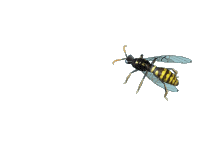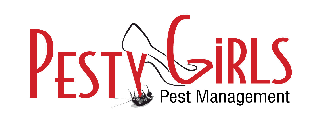Home | About Pesty Girls Pest Management | Cockroaches | Spiders | Ants | Bees | Wasps | Fleas | Possums | Contact Us | Sitemap
This work is copyright. Apart from any use permitted under the Copyright Act 1968, no part may be reproduced by any process, nor may any other exclusive right be exercised, without the permission of Pesty Girls Pest Management (copyright owner) and the year in which the work was made - 2008
© copyright Pesty Girls Pest Management 2011 All rights reserved.
- A wasp’s life span depends on their role in the colony. The fertile female could last for a year while the workers (sterile female) will only last for 22 days or less. Males could last longer, usually up to six weeks. But during that short time frame it experience significant changes which is geared towards the increase of the wasp population.
- European Wasp - aggressive & will defend their nest, swarming out to attack if disturbed.
- Wasps are a seasonal pest starting in Nov-May, during the winter they tend to go dormant.
- Wasps can bite continuously, however bees bite only once.
- Wasps can soften and destroy plaster in walls, leaving large holes
The following characteristics are present in most wasps:
- Two pairs of wings (except wingless or brachypterous forms in all female Mutillidae, Bradynobaenidae, many male Agaonidae, many female Ichneumonidae, Braconidae, Tiphiidae, Scelionidae, Rhopalosomatidae, Eupelmidae, and various other families).
- An ovipositor, or stinger (which is only present in females because it derives from the ovipositor, a female sex organ).
- Few or no thickened hairs (in contrast to bees); except Mutillidae, Bradynobaenidae, Scoliidae.
- Nearly all wasps are terrestrial; only a few specialized parasitic groups are aquatic.
- Predators or parasitoids, mostly on other terrestrial insects; most species of Pompilidae (e.g. tarantula hawks), specialize in using spiders as prey, and various parasitic wasps use spiders or other arachnids as reproductive hosts.








